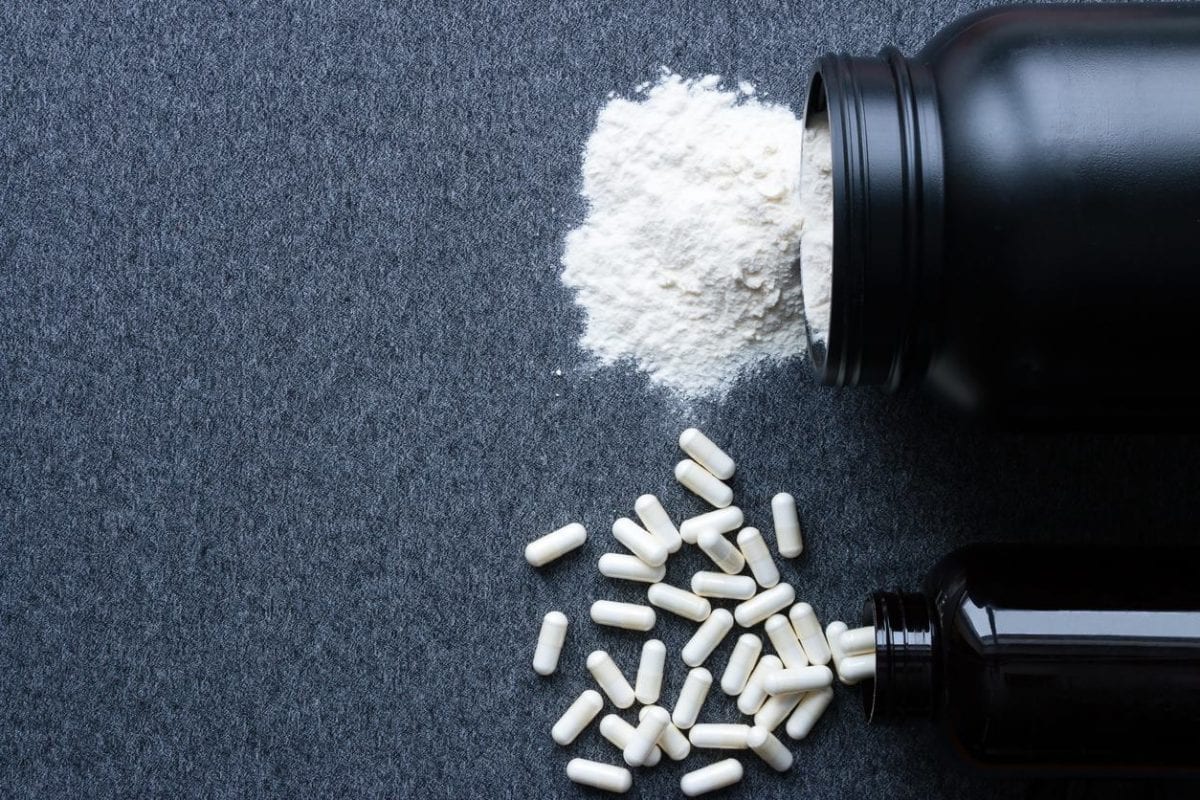In the bodybuilding world, having the best supplements is critical for success. If you are using the wrong supplements, you won’t get optimal performance. Most bodybuilders use creatine monohydrate because it has a long track record of success. However, the truth is you can get a lot out of creatine HCL as well. Building muscle means you have to have the right tools in your toolbox, and creatine is for most bodybuilders just as important as whey protein. Therefore, it is imperative to know which type of creatine is the right one for you.
The first thing you need to do is understand why it’s is so helpful. Your body’s muscles require adenosine triphosphate (ATP) to move and transfer energy. The problem is the storage of ATP is not something your cells do very well, and as soon as the muscle contracts, it starts using ATP. Therefore, for the muscle to make the most efficient and strong movements, you need to have a higher amount of ATP. This is where creatine comes in. It helps your body produce more ATP, and part of the way this happens is by pulling water into your muscle cells, which will increase the protein synthesis going on. In short – creatine helps your muscles work more efficiently. Efficiency helps you make gains in the gym, you can learn more about it and other supplements on legwork.guide, including the difference between creatine monohydrate and creatine HCL. The more you know, the more you will get out of your time at the gym, so let’s explore the differences between the two so you can make a better decision.
What is the Difference Between Creatine Monohydrate and Creatine HCL?
The difference between the two types comes down to how the creatine is absorbed by the muscles and the rate at which it is absorbed. Creatine HCL is bound by hydrochloride, which means it breaks down quicker in your body and gets absorbed in your bloodstream faster. This carries it to your muscles for immediate use. The water retention rate is not as important because this is used pretty much as soon as it enters your body. There are also not as many side effects. Essentially, creatine HCL gets in, helps you do the work, and gets out.
Creatine monohydrate is a bit different. While it seems that creatine HCL may provide greater benefits, the reality is that creatine monohydrate is favored still for a few reasons. The first of which is that it is 99.8 percent pure, which is why it is still favored by so many. While there is a loading phase associated with it, using creatine monohydrate is also more affordable as well when you get down to the price per serving, so there is also great efficiency with it as well.
Now, it may seem that creatine HCL is more soluble, but the reality is we lack enough data to say this definitively.
What are the Differences in Effectiveness Between the Two?
The lack of scientific research means that we just don’t have a way to say if creatine HCL is more effective definitively. Vanderbilt University performed an unpublished study showing creatine HCL dissolving completely in a glass of water. This could be encouraging as it shows the HCL being fully absorbed and used, but the practical measure is that swallowing creatine HCL is easier than creatine monohydrate.
So, because there is very little proof of the effectiveness of creatine HCL, and there is lots of proof of creatine monohydrate having effects on muscle development, it may appear that creatine monohydrate is the more effective creatine. That said, it is hard to discount anecdotal evidence people using creatine HCL discuss. But, in terms of scientific research, the jury is still out on if creatine HCL is more effective than creatine monohydrate.
Which Type is Easier to Use?
Here’s where creatine HCL has a distinct advantage – all you need each day is a ¼ teaspoon serving of it for it to be effective. Creatine monohydrate requires a loading phase that can be between 15 – 20 grams, and then you have to do daily doses of 5 grams in order for muscles to be fully saturated.
Here’s the issue – everyone knows that creatine monohydrate works, but the loading phase and the daily dosage can be a pain, especially when considering how little creatine HCL you need to take to be effective. That’s why some people will combine the two. While they are unsure of creatine HCL’s effect, it is not hurting them to take that extra creatine HCL dose with the effective creatine monohydrate. However, this is something you can do if you have the disposable income to do so.
Which Type is the Safer Version?
The reality is that both types are actually quite safe. Creatine monohydrate has been proven safe unless you have underlying health conditions, but generally, these are health conditions that would be affected by many other things besides creatine. Still, it is always a good idea to see your doctor if you are looking to add to your workout routine or step up your fitness game.
At the same time, creatine HCL’s lack of published research means we don’t quite know how safe it is, but we do know how safe creatine monohydrate is. Creatine monohydrate is also purer than creatine HCL, which is something you must think about as well if it is important to you how pure your supplements are.
Creatine HCL offers great advantages, including a fast absorption rate along with lesser side effects and smaller doses but does not have the same level of research as creatine monohydrate. Creatine monohydrate is the tried and true method for developing muscle, but it is a little more onerous to deal with in terms of the load phase and the dosing.








